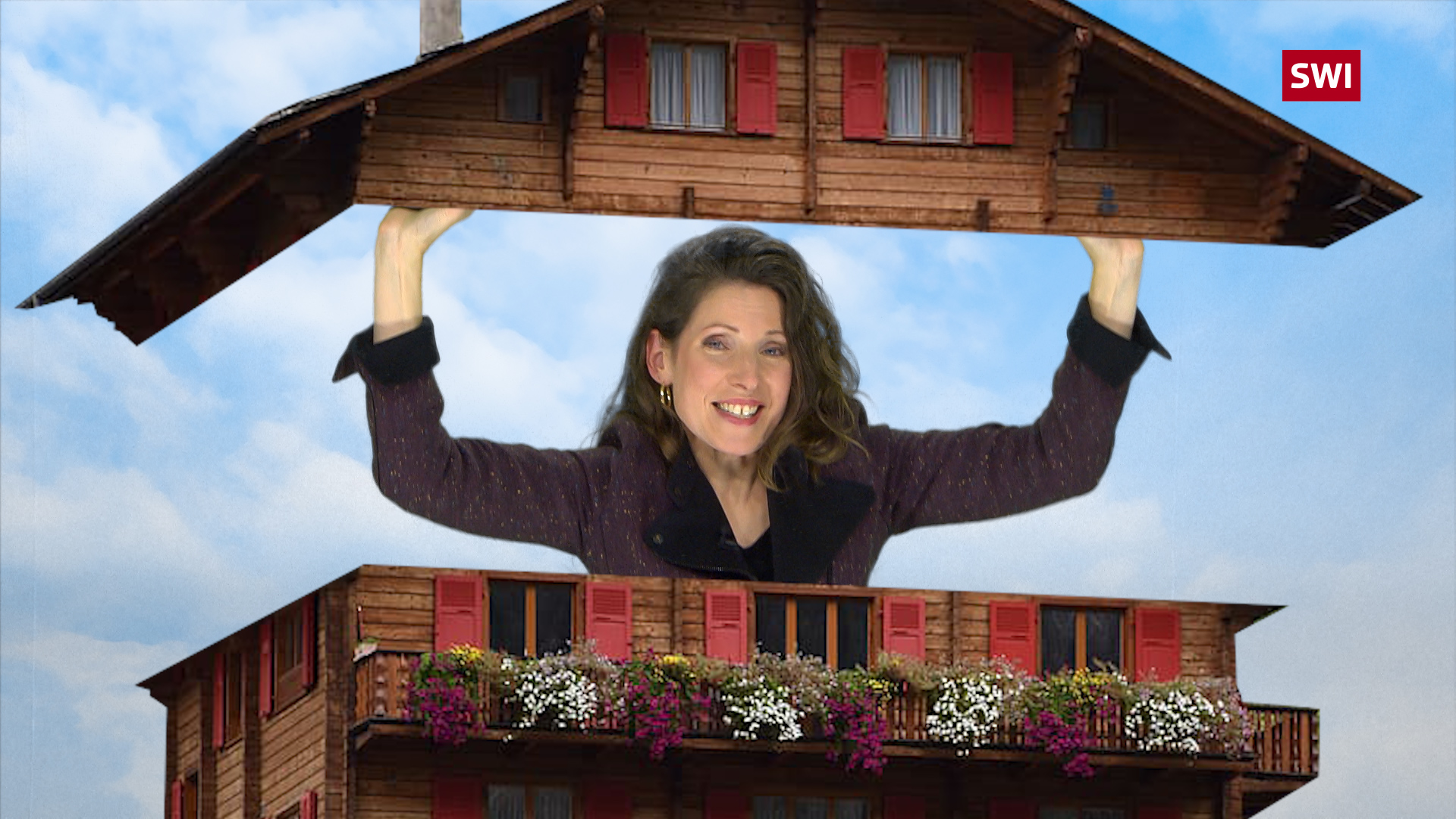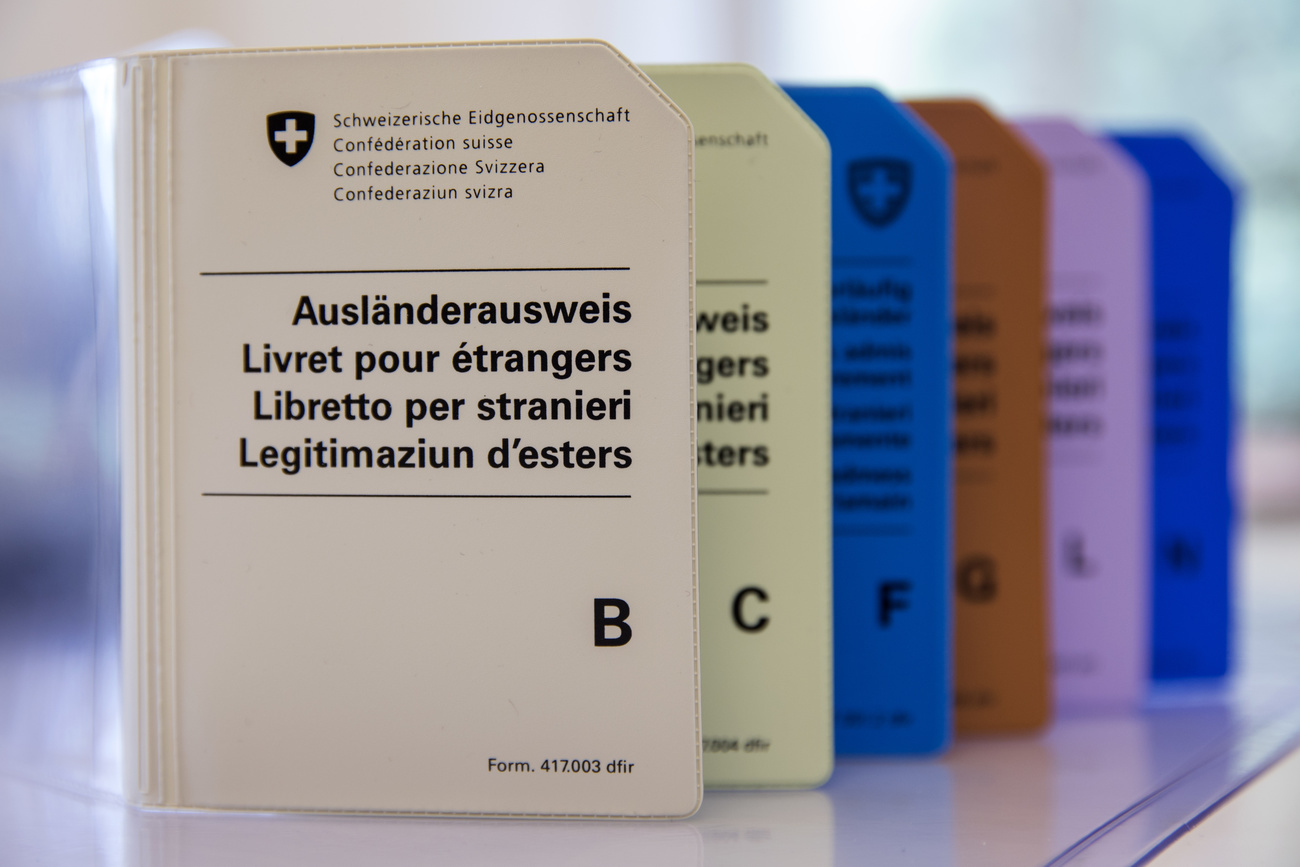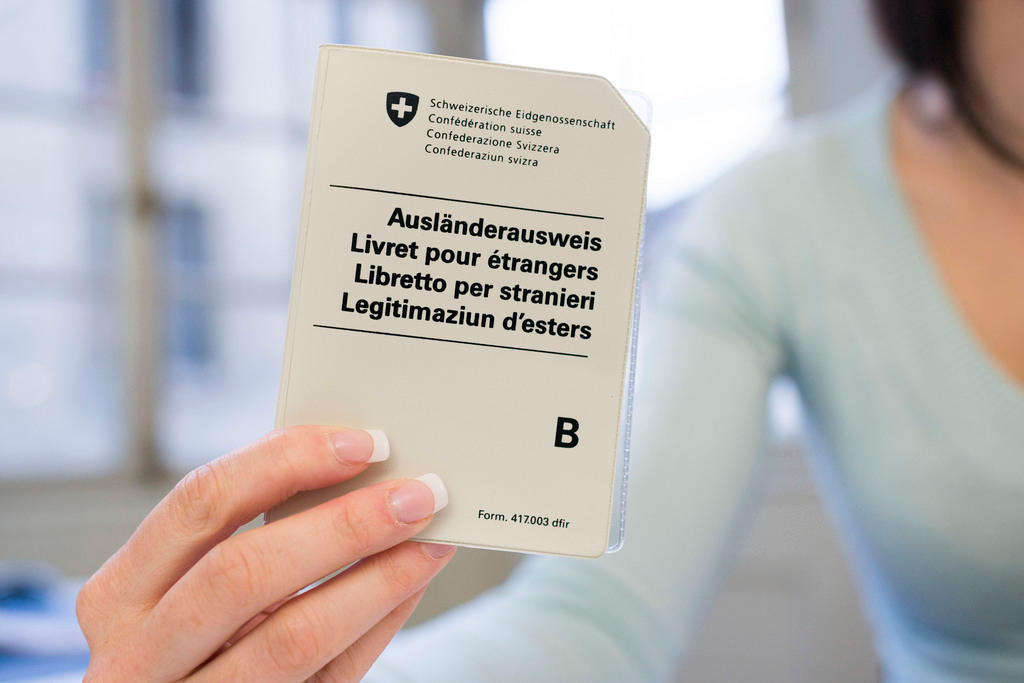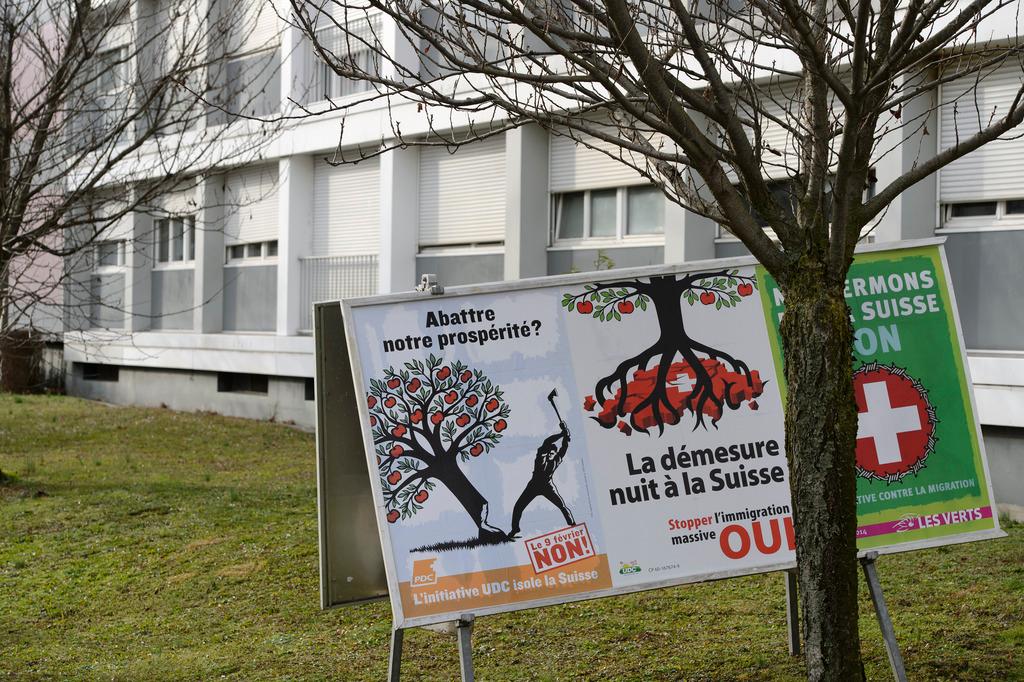Work permit in Switzerland

Obtaining a permit to work in Switzerland depends on many factors, including where you are from, the skills you have and quotas.
The rules for entering and living in Switzerland, including getting a Swiss work permit, are different for EU/EFTA citizens and people from non-EU/EFTA countries (third countries).
Since Brexit, UK nationals follow a special set of rules.

More
Living and working in Switzerland
Work permit for EU and EFTA citizens
Citizens of EU and EFTA countries, like Iceland, Norway, and Liechtenstein, can live and work in Switzerland. They can stay for three months to look for a job. If needed, they can extend this to six months by applying for a short-term residence permit and proving they have enough money.
They can work in Switzerland for up to three months without any paperwork. For longer jobs, they must apply for a residence permit at their local municipality before starting work.
Self-employed people must register within 14 days of arriving and apply for a residence permit.
Switzerland places no limits on the number of permits issued to EU/EFTA citizens.

More
Swiss work permits for non-EU employees unchanged for 2024
Swiss work permit for Citizens of third countries
Only “qualified” individuals from non-EU/EFTA countries can work in Switzerland. This group includes executives, specialists, and university graduates with several years of experience.
They need a work permit for any job, even short-term ones. Employers handle the application and must show that hiring a third-country national benefits Switzerland’s economy. They also need to prove they couldn’t find suitable candidates in Switzerland or the EU/EFTA region. If the job lasts several years, authorities also consider how well the person can integrate professionally and socially, such as their language skills and age.
Getting a work permit doesn’t always mean you can enter Switzerland. Some nationalities may also need a visa.
A work permit can also be granted for self-employment. Spouses of Swiss citizens or those with a settlement permit don’t need a work permit.
The Swiss government limits the number of residence permits for workers from non-EU/EFTA countries each year.

More
Full integration out of reach for non-European migrants
UK nationals
Since January 1, 2021, the UK has been treated as a third country and follows the same rules. However, UK citizens who secured residency in Switzerland before this date can keep their rights.
The Swiss government has established specific quotas for UK residence permits while awaiting a potential migration agreement between the two countries.
Different types of Swiss Work permits
L permit
The Swiss L Permit is indeed a short-term residence authorization for foreign nationals planning to stay in Switzerland for specific purposes, typically for periods of less than one year
This permit caters to both employed and unemployed individuals, with eligibility criteria varying based on the applicant’s nationality.
L Permit for EU/EFTA Nationals
- Employment Contracts: EU/EFTA nationals are entitled to an L Permit upon presenting an employment contract valid for three to twelve months. The permit’s validity corresponds to the duration of the employment contract and can be extended for up to a total of less than twelve months.
- Job Seekers: EU/EFTA nationals may also qualify for an L Permit while seeking employment in Switzerland, provided they meet certain conditions.
- Registration Requirement: Upon arrival, EU/EFTA citizens must register with the local authorities in their municipality of residence within 14 days and before commencing employment. They need to present a valid identity card or passport and, if applicable, an employment contract.
L Permit for Non-EU/EFTA Nationals
- Employer Sponsorship: Non-EU/EFTA nationals typically require a Swiss employer to sponsor their residence permit. The employer must demonstrate that no suitable candidate was found within Switzerland or the EU/EFTA for the position, adhering to the principle of labor market priority.
- Qualifications and Experience: Applicants are generally expected to possess specialized skills or qualifications, such as a university degree and several years of professional experience, to fill specific labor shortages in Switzerland.
- Permit Validity: The L Permit for non-EU/EFTA nationals is usually tied to the duration of the employment contract, up to a maximum of one year. Extensions are possible but are subject to annual quotas and other regulatory considerations.
- Application Procedure: The application for an L Permit must be submitted by the prospective employer to the cantonal migration authorities where the employment is planned. The process involves several administrative steps, and approval is contingent upon meeting all regulatory requirements2.
Additional Considerations
Permit Renewal: Timely renewal of the L Permit is crucial. Authorities will assess whether the original conditions for granting the permit are still fulfilled during the renewal process
Family Reunification: L Permit holders may have limited rights to bring family members to Switzerland, depending on their nationality and specific circumstances.

More
Why Switzerland needs workers from abroad
B permit
The Swiss B Permit allows foreign nationals to live in Switzerland for a long time, whether they have a job or not. The application process and requirements depend on whether the applicant is from the EU/EFTA or not.
B Permit for EU/EFTA Nationals
People from EU/EFTA countries benefit from the Agreement on the Free Movement of Persons, making it easier for them to live and work in Switzerland. Key points include:
- Employment Contracts: If you have a job contract for at least one year or indefinitely, you can get a B Permit. This permit lasts for five years and can be renewed.
- Self-Employment: If you want to be self-employed, you must show that your business is viable and sustainable.
- Registration Requirement: When you arrive, you must register with local authorities within 14 days and before starting work. You need to show a valid ID or passport and, if applicable, your job contract.
B Permit for Non-EU/EFTA Nationals
For people from outside the EU/EFTA, getting a B Permit is harder and subject to quotas. Important points include:
- Employer Sponsorship: You usually need a Swiss employer to sponsor your permit. The employer must prove they couldn’t find a suitable candidate from Switzerland or the EU/EFTA.
- Qualifications and Experience: You generally need specialized skills or qualifications, like a university degree and several years of experience, to fill specific job shortages.
- Permit Validity: The B Permit is usually issued for one year but can be renewed annually if your job continues and other conditions are met.
- Application Procedure: You must apply to the cantonal migration authorities where you plan to work. The process involves several steps, and approval depends on meeting all requirements.
Additional Considerations
- Family Reunification: B Permit holders may bring family members to Switzerland if they have adequate housing and financial means.
- Integration Requirements: Authorities may expect you to show efforts toward integration, like learning the language and understanding Swiss norms.
- Permit Renewal: Renewing your B Permit on time is crucial. Authorities will check if the original conditions for the permit are still met.

More
Rich foreigners ‘buy’ Swiss residency thanks to derogation
C Permit
The Swiss C Permit, or settlement permit, grants foreign nationals the right to reside in Switzerland indefinitely. Eligibility criteria and the required duration of prior residence vary based on factors such as nationality, integration level, and individual circumstances.
Eligibility Criteria
Standard Residency Requirement: Generally, foreign nationals become eligible for a C Permit after ten years of continuous residence in Switzerland.
Accelerated Eligibility:
EU/EFTA Nationals: Citizens from EU/EFTA countries can apply for a C Permit after five years of uninterrupted residence, provided they meet integration and employment conditions.
Certain Non-EU/EFTA Nationals: Nationals from specific countries, such as the United States and Canada, may also qualify after five years if they fulfill particular integration requirements.
Integration Requirements: Applicants must demonstrate sufficient integration into Swiss society, which includes:
Language Proficiency: Competence in the official language of the canton of residence, typically at least A2 level in oral skills and A1 in written skills.
Clean Criminal Record: No significant criminal offenses.
Financial Independence: Proof of financial stability without reliance on social assistance.
Validity
The C Permit is granted for an indefinite periodExternal link, allowing holders to live and work anywhere in Switzerland without additional permits.
Ci Permit
This permit is for family members (spouses and children up to age 25) of civil servants working for intergovernmental organizations or foreign representations. It allows gainful employment and remains valid as long as the primary beneficiary continues their official duties.
G Permit
This cross-border commuter permit is for EU/EFTA nationals who live in an EU/EFTA country but work in Switzerland. Commuters must return to their main residence abroad at least once a week. The permit is valid for five years if the job contract is open-ended or longer than one year. For people with shorter contracts, the G permit remains valid for the duration of the employment.
For the most accurate information, check the official website of the State Secretariat for Migration (SEM) or contact local cantonal migration offices, as rules can change
– Official information website ch.chExternal link
– Residence permits for people from EU/EFTA countries on the SEM websiteExternal link
– Brochure “Working in Switzerland” in 12 languagesExternal link

In compliance with the JTI standards
More: SWI swissinfo.ch certified by the Journalism Trust Initiative









You can find an overview of ongoing debates with our journalists here . Please join us!
If you want to start a conversation about a topic raised in this article or want to report factual errors, email us at english@swissinfo.ch.